

Beavertail Lighthouse, Jamestown RI
Gallery
Images
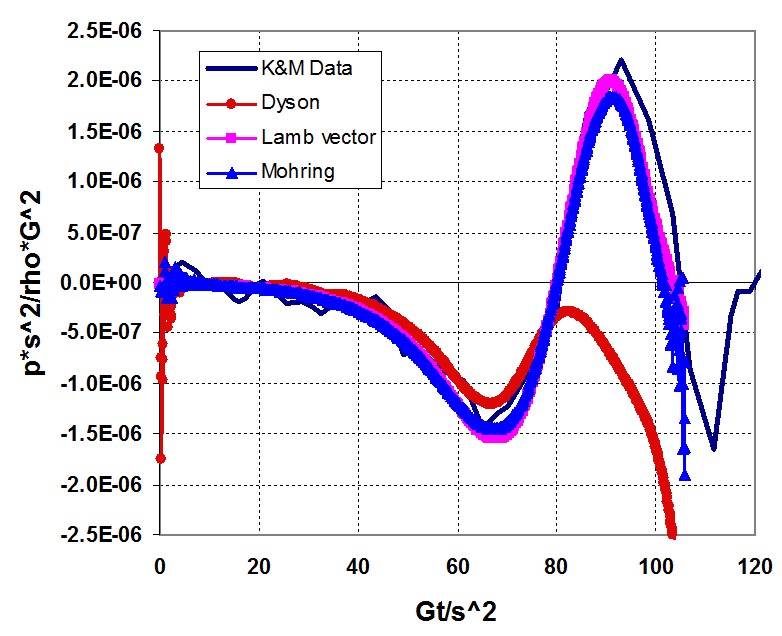
Sound produced by the head-on collision of two ring vortices
A comparison of the sound predicted by the similation of the head-on collision of two ring vortices (see below) with the measured data of Kambe & Minota. The Lamb Vector and Mohring results are for two different ways of computing the sound from the vorticity, while the Dyson results are for a vortex filament model employed by Kambe & Minota. Note that the experimental results cease to be axisymmetric at about a dimensionless time of 105. (Uhlman 2003)

DNS of particle dispersion from the core of a turbulent vortex flow
Traditional stochastic models disperse particles randomly in turbulent flows. Experiments and DNS show that particles cluster in high concentration sheets due to centrifugal action of turbulent eddies.
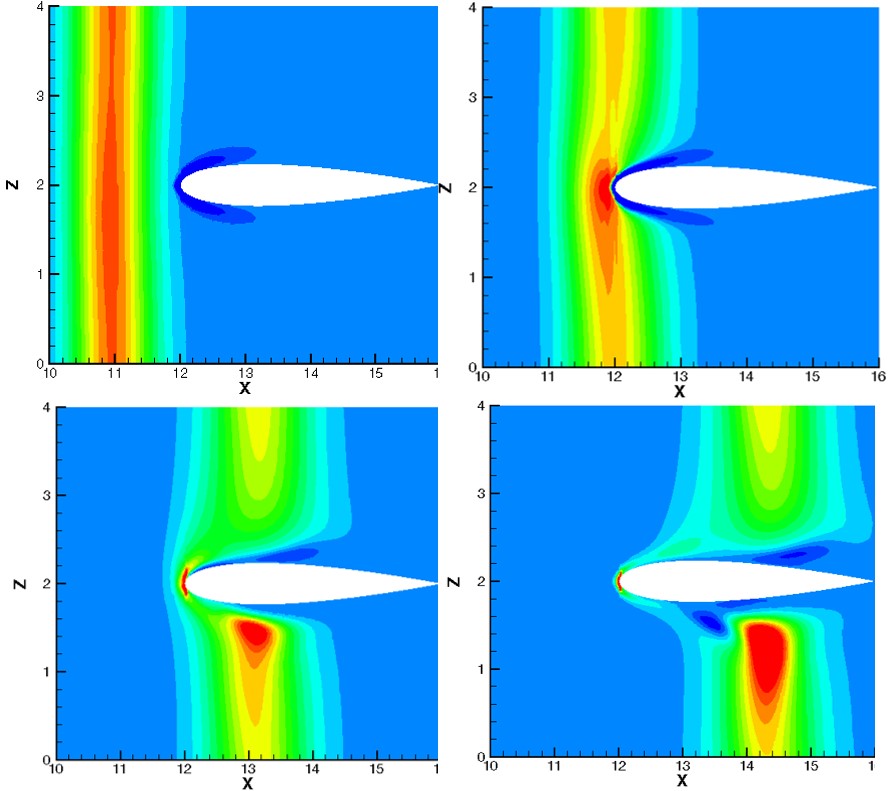
Interaction of a supercritical vortex with a blade
Showing contours of the z-component of vorticity. The vorticity increases and core radius decreases on the bottom of the blade (opposite on top). Vortex-induced separation occurs on the bottom surface (not the leading edge). There is incomplete cutting of vortex.
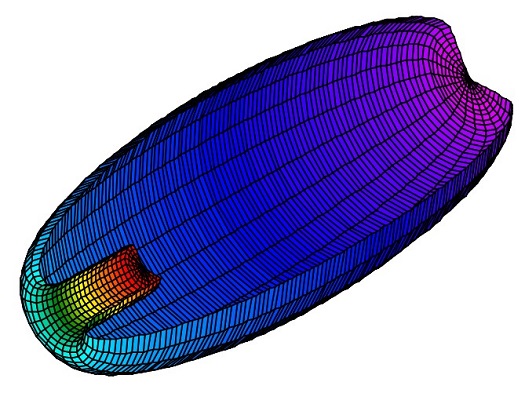
Reentrant Jet Cavity Behind a Disk
Cut-away view of an axisymmetric cavity with a reentrant jet behind a disk cavitator with l/d = 5. Shades represent the disturbance potential. Solution has been revolved about the axis of symmetry to obtain cut-away view. (Uhlman 2006)
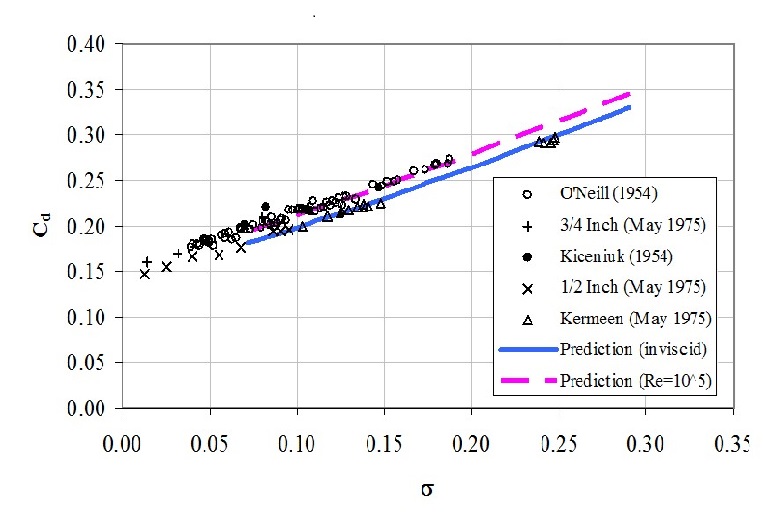
Drag Coefficient for a Conical Cavitator
Comparison of predicted and experimental drag coefficients for a 15 degree half angle cone cavitator for 2<l/d<10 (data from May 1975).
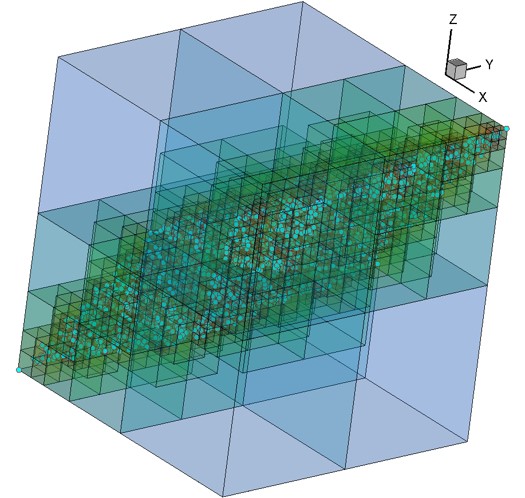
Adaptive box structure
Visualization of the box structure resulting from an Adaptive Fast Multipole Method (AFMM) as applied to a nonuniform distribution of points (the blue dots).
Animations
Head-On Collision of Two Vortex Rings
The evolution of the vorticity, pressure, axial and radial velocities in the head-on collision of two ring vortices as computed using an axisymmetric Lagrangian vortex element method. (Uhlman 2003)
Cutaway View of Vorticity
Cutaway View of Pressure
Cutaway View of Radial Velocity
Cutaway View of Axial Velocity
Vortex in a box
The field resulting from a calculation using Lagrangian vortex elements to model the evolution of an initially circular vortex of constant strength and the pressure as sampled on a 50x50 grid.
Lagrangian Vortex Elements
Pressure on sampling grid